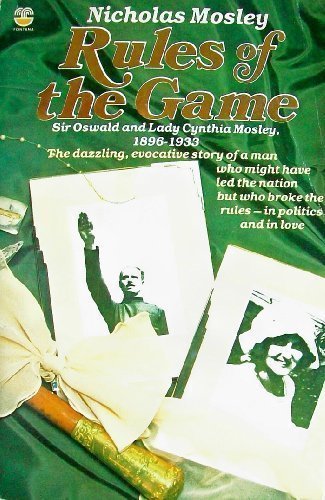What do you think?
Rate this book


"[Nicholas Mosley] has achieved something dazzling—a book which is immensely clever and interesting on many different levels. . . . The pace is fast, the characters are vivid, his mother's death unbearably sad. Much of this effect is created by his skill as a novelist; but Oswald and Cynthia Mosley live up to the demands of art." (Robert Skidelsky, Times Literary Supplement 11-11-83)
"A brilliant book. . . . he has honoured his father by not bending the facts and introducing us to a form of biography which can be truly looked on as a work of art." (Ulick O'Connor, Sunday Independent 12-11-83)
"A fascinating account. . . . It makes extensive use, for the first time, of Oswald Mosley's private papers, notably his letters to his mother, his wives, and his children, and thus depicts him with an immediacy that was lacking in both previous accounts." (David Cannadine, New Yorker 8-5-91)
"A remarkable biography. . . . Highly recommended." (Choice 12-91)
"An absorbing complement to the standard biography . . . this is a highly readable, vivid portrayal of a controversial and charismatic figure." (Library Journal 5-15-91)
288 pages, Paperback
First published October 17, 1994